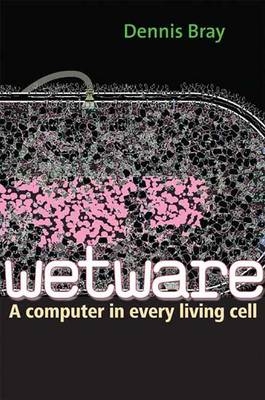
Wetware
The Computer in Every Living Cell
Seiten
2009
Yale University Press (Verlag)
978-0-300-14173-3 (ISBN)
Yale University Press (Verlag)
978-0-300-14173-3 (ISBN)
- Titel ist leider vergriffen;
keine Neuauflage - Artikel merken
How does a single-cell creature, such as an amoeba, lead such a sophisticated life? How does it hunt living prey, respond to lights, sounds, and smells, and display complex sequences of movements without the benefit of a nervous system? This book offers an original answer. It also includes perceptive critiques of robotics and complexity theory.
How does a single-cell creature, such as an amoeba, lead such a sophisticated life? How does it hunt living prey, respond to lights, sounds, and smells, and display complex sequences of movements without the benefit of a nervous system? This book offers a startling and original answer.In clear, jargon-free language, Dennis Bray taps the findings of the new discipline of systems biology to show that the internal chemistry of living cells is a form of computation. Cells are built out of molecular circuits that perform logical operations, as electronic devices do, but with unique properties. Bray argues that the computational juice of cells provides the basis of all the distinctive properties of living systems: it allows organisms to embody in their internal structure an image of the world, and this accounts for their adaptability, responsiveness, and intelligence.In "Wetware", Bray offers imaginative, wide-ranging and perceptive critiques of robotics and complexity theory - as well as many entertaining and telling anecdotes.
For the general reader, the practising scientist, and all others with an interest in the nature of life, the book is an exciting portal to some of biology's latest discoveries and ideas.
How does a single-cell creature, such as an amoeba, lead such a sophisticated life? How does it hunt living prey, respond to lights, sounds, and smells, and display complex sequences of movements without the benefit of a nervous system? This book offers a startling and original answer.In clear, jargon-free language, Dennis Bray taps the findings of the new discipline of systems biology to show that the internal chemistry of living cells is a form of computation. Cells are built out of molecular circuits that perform logical operations, as electronic devices do, but with unique properties. Bray argues that the computational juice of cells provides the basis of all the distinctive properties of living systems: it allows organisms to embody in their internal structure an image of the world, and this accounts for their adaptability, responsiveness, and intelligence.In "Wetware", Bray offers imaginative, wide-ranging and perceptive critiques of robotics and complexity theory - as well as many entertaining and telling anecdotes.
For the general reader, the practising scientist, and all others with an interest in the nature of life, the book is an exciting portal to some of biology's latest discoveries and ideas.
Dennis Bray is professor emeritus, University of Cambridge, and coauthor of several bestselling and influential texts on molecular and cell biology. In 2007 he was awarded the prestigious European Science Prize in Computational Biology. He lives in Cambridge.
| Erscheint lt. Verlag | 15.5.2009 |
|---|---|
| Zusatzinfo | 23 black-&-white illustrations |
| Sprache | englisch |
| Maße | 156 x 234 mm |
| Themenwelt | Naturwissenschaften ► Biologie ► Zellbiologie |
| ISBN-10 | 0-300-14173-4 / 0300141734 |
| ISBN-13 | 978-0-300-14173-3 / 9780300141733 |
| Zustand | Neuware |
| Haben Sie eine Frage zum Produkt? |
Mehr entdecken
aus dem Bereich
aus dem Bereich
mikroskopisch kleine Multitalente
Buch | Hardcover (2024)
Schweizerbart'sche, E. (Verlag)
CHF 41,85
Buch | Softcover (2024)
University of Chicago Press (Verlag)
CHF 36,65


